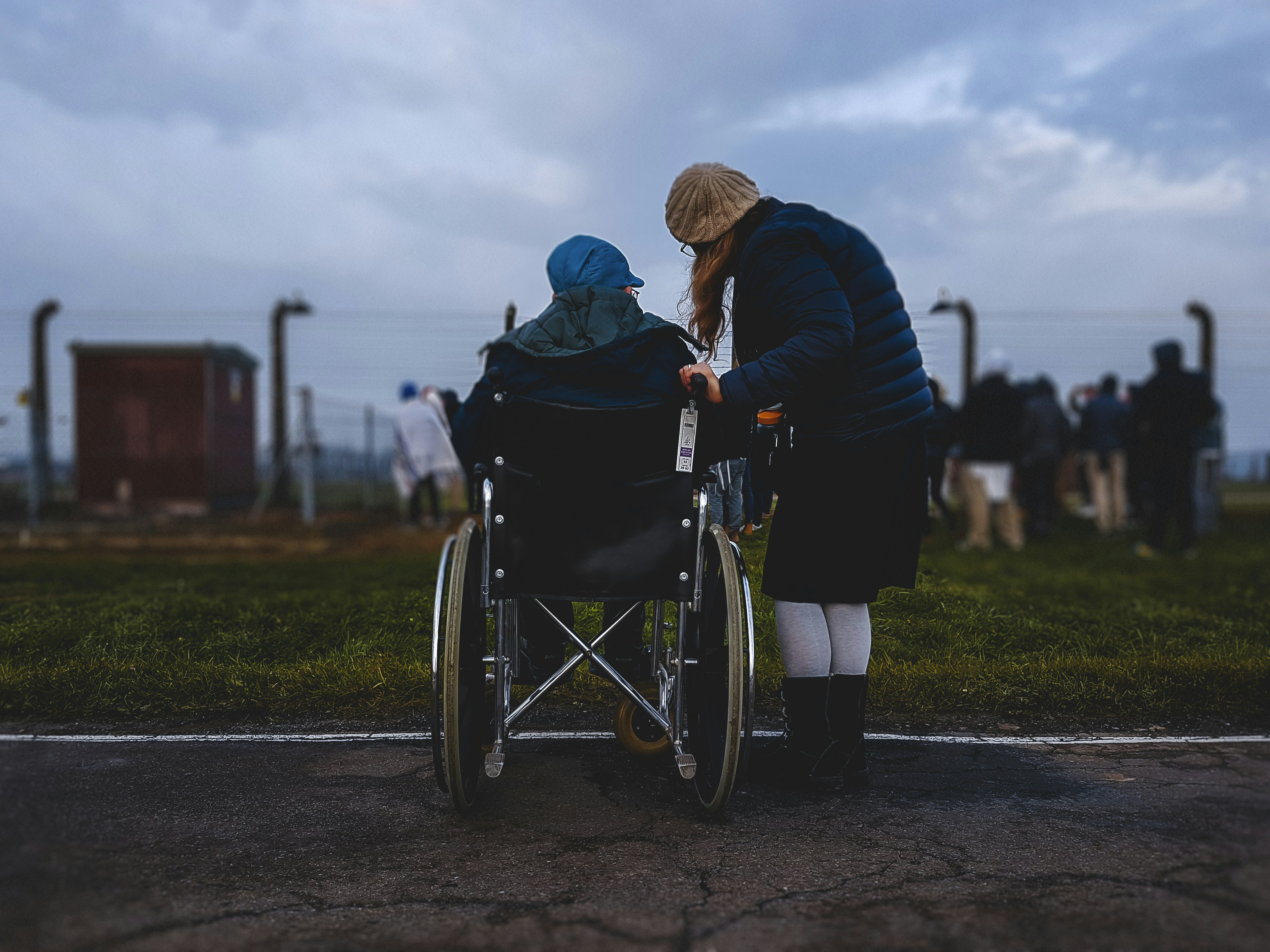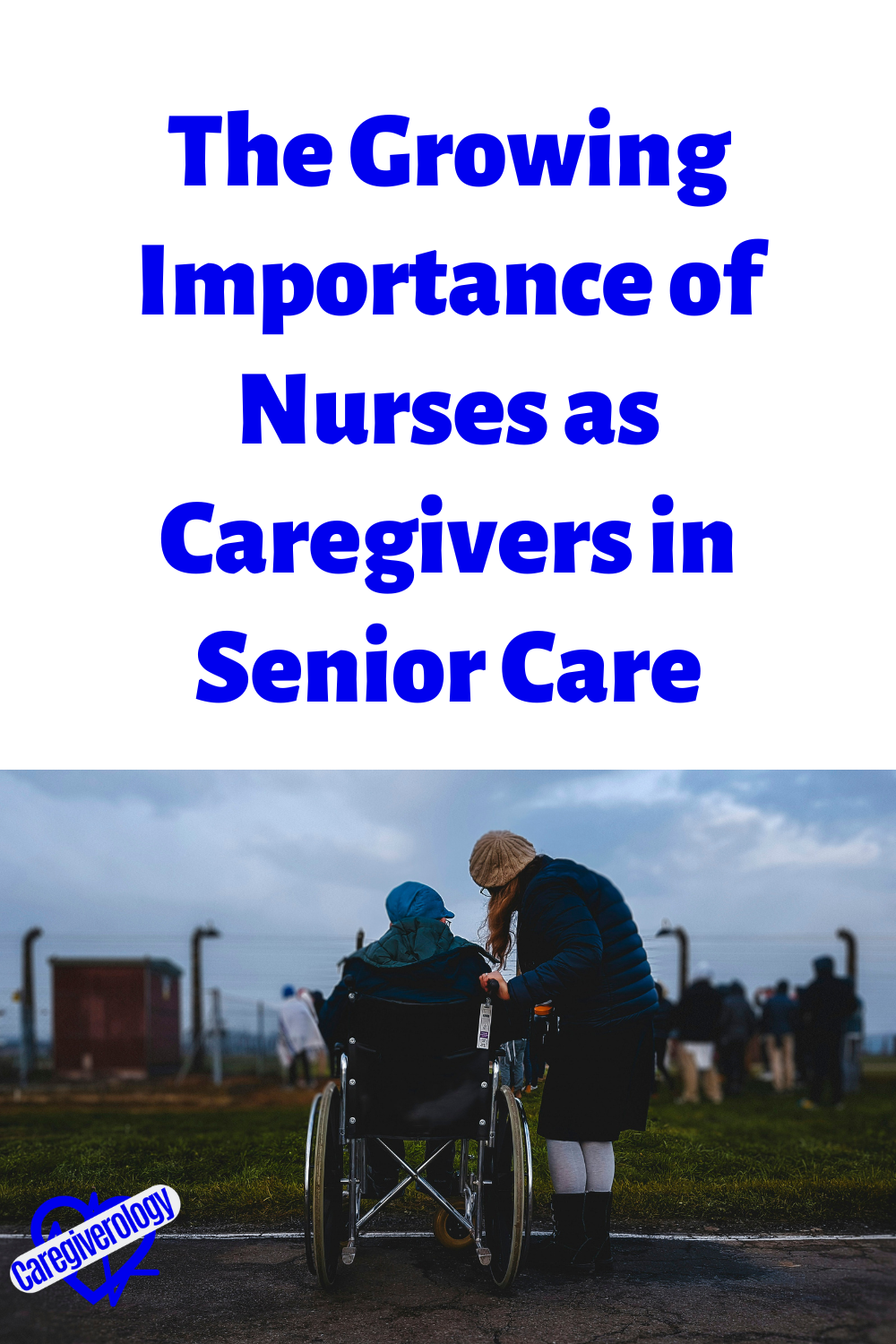The Growing Importance of Nurses as Caregivers in Senior Care

If doctors are the backbone of our healthcare system, it wouldn’t be wrong to call the nurses its heart. While the former treats patients, it’s the latter’s job to offer compassion and empathy that patients desperately need beyond medical care and assistance.
As our population is steadily aging, the role of nurses has become even more critical, especially in senior care. Healthcare for seniors isn’t just about treating illnesses. It’s about understanding the complexities of aging.
They face unique challenges - chronic conditions, mobility issues, and cognitive changes - that require a different approach than the care younger patients receive.
Nurses in senior care step into this role with grace and dedication, becoming more than just healthcare providers. They also become the seniors’ trusted companions, advocates, and sources of comfort.
Today, we’re here to discuss the growing importance of nurses as caregivers to seniors.
The Current State of Senior Care
The current state of senior care is at a critical juncture. The world is on its path to witnessing unprecedented growth in its elderly population. This expanding demographic shift is now reshaping the entire healthcare industry.
Yet, our senior care system is struggling to keep pace with this surge. You might have heard stories of overwhelmed caregivers, understaffed facilities, and seniors not receiving the attention they deserve. These aren’t just isolated incidents. They’re part of a larger, looming crisis.
Once considered a distant problem, the senior care crisis is now knocking at our doors. We can’t overlook it any further. To meet this crisis, nurses are stepping in to fill the gaps of senior caregivers. Their role as facilitators of senior care is currently in transition, demanding a complete rethinking of how we approach elder care.
What is the silver tsunami?
According to the Government Executive, “silver tsunami” is a metaphor that is used around the world to describe the overwhelming aging pattern in America. The phenomenon began in 2011, with over 10,000 Americans turning 65 every single day. It is expected to continue up to 2030.
The Evolving Role of Nurses in Senior Care
The role of nurses in senior care has evolved dramatically, becoming more vital than ever before. As our senior population grows, so does the complexity of their healthcare needs.
Today’s nurses are not just caregivers. They’re also educators, advocates, and key decision-makers in the care of elderly patients. Most people usually think of a nurse as someone who checks vitals and administers medication.
However, in senior care, their responsibilities go much deeper. Nurses are the first to notice subtle changes in a patient’s condition - from a shift in mood to signs of cognitive decline.
They use this insight to create personalized care plans that address the unique needs of each senior. Beyond medical care, nurses provide emotional support, offering a comforting presence that helps seniors feel understood and respected.
Why Should Nurses Choose Senior Care as a Career?
There’s no denying that a career in nursing is currently in demand. In the wake of the pandemic, most countries have faced a severe shortage of registered, with the U.S. being a prime example of the crisis.
A news article from CW39 Houston reported that over 190,000 nursing jobs opened up in the nation every single year. But while being a registered nurse is a promising prospect today, why should you choose a career in senior care?
Imagine being the person who brings comfort to someone’s golden years, helping them navigate the challenges of aging with grace and compassion. Choosing a career in senior care is not just a job. It’s a calling filled with purpose and fulfillment.
The last few years have witnessed a steady growth in the demand for skilled nurses in senior care. This translates to better job security and numerous opportunities for career advancement for nurses in the field.
Beyond the practical benefits, senior care allows you to be part of something truly meaningful. Your role in improving the quality of life for your patients will be pivotal.
If you’re a nurse looking for a career where you can make a difference, senior care might be the perfect path for you. Here, every day presents an opportunity to connect deeply with your patients, building relationships that go beyond typical nurse-patient interactions.
Skills That Make You a Better Caregiver for Seniors
If you want to be a professional caregiver for seniors, it’s a good idea to start by completing the steps to become a nurse. While caregivers aren’t necessarily required to be nurses, this knowledge will establish your fundamentals of caregiving.
Any registered nurse (RN) is expected to have thorough medical knowledge of most aspects of the healthcare system, notes Marymount University. This is how they qualify for conducting assessments, administering medications, and prioritizing medical interventions.
Now, for a registered nurse to become a better caregiver for seniors, here are some essential skills you should develop:
Compassion & Empathy
Here’s what you need to know about caring for seniors - the experience can often appear draining, both emotionally and physically. Compassion and empathy are key to perceiving the struggles of the senior beyond your feelings.
When you treat them with compassion and empathy, the seniors are more likely to feel comfortable around you. It will help them express their discomfort and struggle to you more openly, therefore allowing for better care.
An Understanding of the Aging Process
Aging brings about many changes in seniors, extending beyond their ability to see, hear, and communicate.
Most seniors are dealing with multiple conditions at once and might not always know what’s wrong or why. But as their caregiver, you should. A comprehensive understanding of the aging process arms you with the knowledge to have answers in such scenarios or know where to find them.
What communication skills should senior care nurses possess?
When it comes to elder care, your communication skills as a caregiver are a fundamental requirement. To care for seniors, you might need to repeat yourself, speak louder, and even use hand gestures. Polishing your non-verbal communication skills is just as important for the job.
Caring for the elderly is not necessarily an easy job. However, if you’re determined to make a difference for people in their golden years, it can be the most satisfying job ever. Nurses as caregivers for the elderly are an invaluable resource in most countries today, including America. If you’ve wanted to work in this sector of healthcare, there’s no time like the present to make the switch.
Guest Articles Written for Caregiverology
From The Growing Importance of Nurses as Caregivers in Senior Care to Home
Recent Articles
-
Common Truck Crash Injuries and Legal Remedies - Caregiverology
Jul 19, 25 10:49 AM
Known for its sun-drenched beaches, vibrant arts scene, and bustling maritime industry, Fort Lauderdale is a city that sees heavy traffic both on its roads and at its busy port. Unfortunately, with th… -
Why Expert Legal Help Matters After Serious Injury - Caregiverology
Jul 19, 25 10:35 AM
In Houston, over 67,600 car crashes occurred in 2023, resulting in 290 fatalities and 1,612 serious injuries. That’s roughly 185 accidents every day. -
How Life Care Planners Support Injury Recovery - Caregiverology
Jul 19, 25 10:18 AM
In Los Angeles, life care planners play a vital role in supporting injury recovery, especially for individuals facing catastrophic injuries such as traumatic brain injuries or spinal cord damage.





New! Comments
Have something to say about what you just read? Leave a comment in the box below.